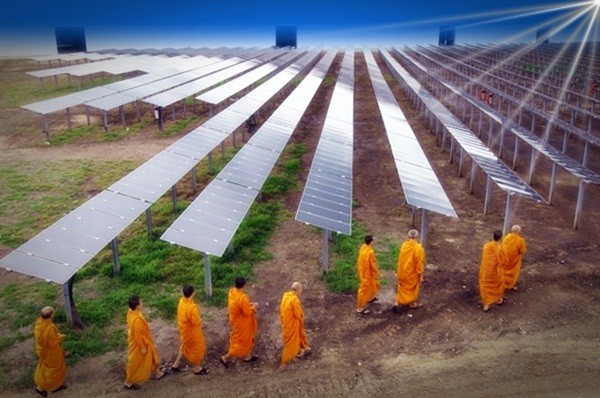Speeches Shim
The United States Agency for International Development (USAID) regional Private Financing Advisory Network-Asia will assist businesses, governments, and others in Asia’s developing countries to mobilize and scale-up investments in clean energy.

The primary goals of the five-year program, which will end in 2016, are to mobilize at least $1 billion in funds for clean energy investments and avoid or reduce greenhouse gas emissions amounting to at least 40 million tons of carbon dioxide equivalent. Over the past 10 years, Asia has experienced tremendous economic growth, rising income levels and increased rates of urbanization. As a result of these trends, Asia currently consumes about 34 percent of the world’s primary energy and contributes a little more than one-third of the world’s total carbon dioxide emissions from energy and industrial sources.
BUILDING REGIONAL ENERGY PARTNERSHIPS
USAID’s regional program will focus on developing country members of the Association of Southeast Asian Nations (ASEAN), including: Cambodia, Laos, Indonesia, Malaysia, Philippines, Thailand, and Vietnam, with possible expansion to South Asia. It will operate as part of the global Climate Technology Initiative-Private Financing Advisory Network initiative started under the International Energy Agency, and in cooperation with the United Nations Framework Convention on Climate Change.
DEVELOPING CLEAN ENERGY PROJECTS
Program staff will help train clean energy project developers and entrepreneurs to develop high-quality projects and proposals, match qualified clean energy project developers with investors to secure financing and develop projects. The program is also designed to improve the business environment for clean energy investment through targeted technical assistance and establish a permanent, self-sustaining regional platform to facilitate long-term access to clean energy financing.
EXPECTED RESULTS
The program is expected to achieve at least $1 billion in funds directly or indirectly mobilized for clean energy investments, avoided or reduced greenhouse gas emissions amounting to at least 40 million tons of carbon dioxide equivalent, increased access to sustainable electricity and the creation of an Asia-based, financially viable, and sustainable financing platform.
PARTNERS
Implementing partners: Deloitte Consulting LLP, SSG Advisors Inc., DFDL Legal and Tax, and TetraTech. Cooperating Partners: ASEAN, Asian Development Bank, Lower Mekong Initiative, United Nations Sustainable Energy for All and the U.S. Department of State.

Comment
Make a general inquiry or suggest an improvement.